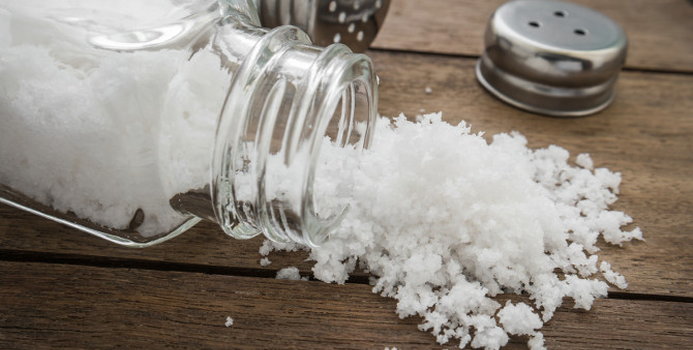Sodium, found naturally in some foods and added to other foods, comes in a variety of forms. The total amount of sodium in your diet is most important when trying to keep your heart disease risk low. However, some people don't appear to tolerate some forms of sodium very well.
What is MSG?
Monosodium glutamate (MSG) is a form of sodium that's naturally present in some foods and added to others. MSG is a sodium salt from an amino acid called glutamic acid and found naturally in foods like tomatoes and cheese, according to the U.S. Food and Drug Administration (FDA). MSG is also produced by fermenting foods like sugar beets, sugar cane, molasses and starch. The FDA reports that adding MSG to foods is generally recognized as safe.
What is Sodium?
A variety of different types of sodium are found naturally in foods, added to foods to enhance flavor, and added as preservatives. MSG is just one type of sodium. Others include sodium chloride (table salt), sodium nitrite, sodium bicarbonate (baking soda), sodium saccharin and sodium benzoate, notes MedlinePlus. Sodium is naturally present in foods like celery, beets and milk and is found in large amounts in soy sauce, garlic salt, onion salt, Worcestershire sauce and bouillon cubes. The total amount of sodium in a food is listed on its nutrition facts label, and the Dietary Guidelines for Americans 2010 suggest adults limit dietary sodium to 1,500 to 2,300 milligrams daily.
Is MSG Unhealthy?
Any form of sodium, including MSG, is unhealthy when consumed in large amounts because it can lead to high blood pressure and increase heart disease risks. The FDA deems MSG safe, but notes that some people claim to be sensitive to it and have reported nausea and headaches after eating foods containing MSG. MedlinePlus reports that while not scientifically proven, it's possible some people may experience MSG sensitivity with symptoms of flushing, headaches, chest pain, sweating, or burning and numbness around the mouth after eating foods, specifically Chinese foods, containing MSG.

An experienced health, nutrition and fitness writer, Erin Coleman is a registered and licensed dietitian and holds a dietetics degree from the University of Wisconsin-Madison. She also has worked as a clinical dietitian and health educator in outpatient settings. Erin's work is published on popular health websites, such as TheNest.com and JillianMichaels.com.



